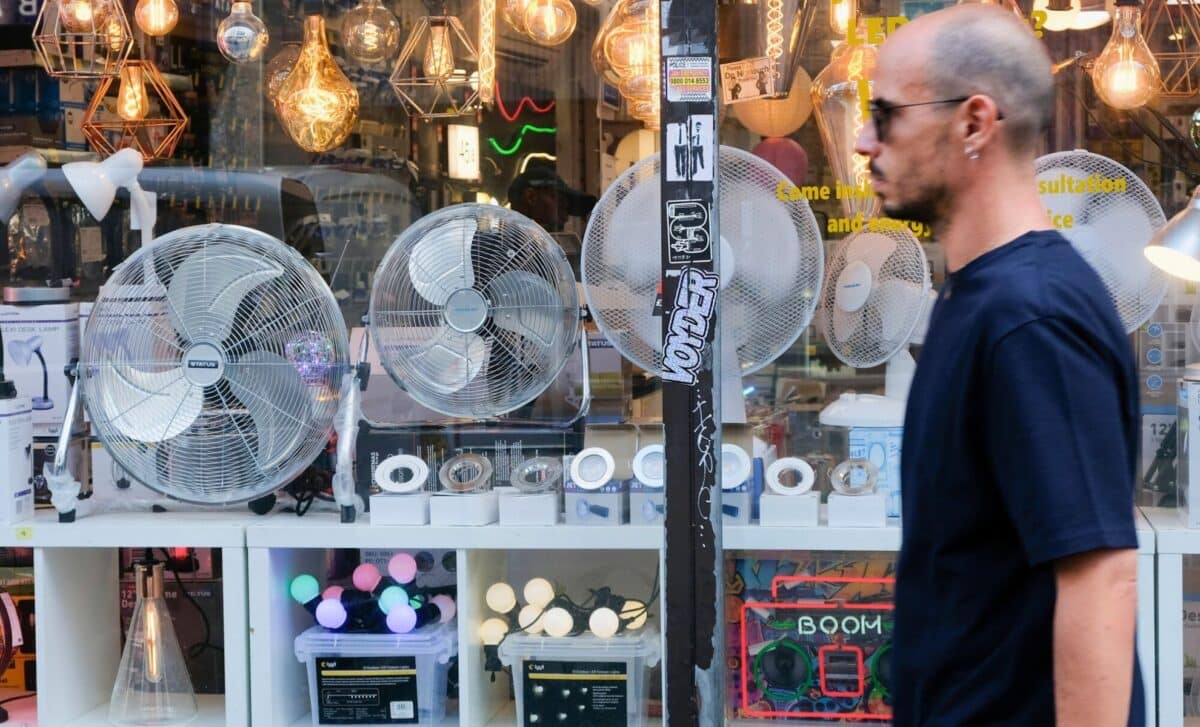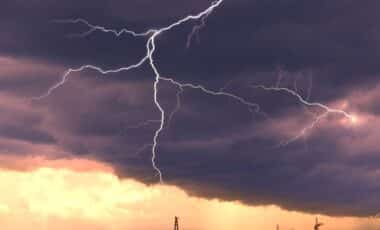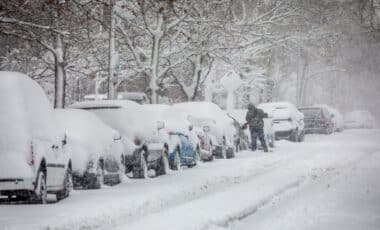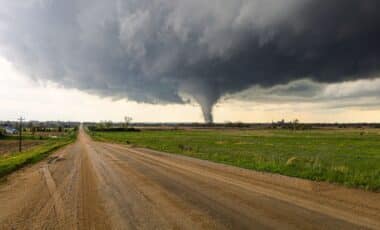In the UK, it is common for people to use fans as a solution to summer heat. Nonetheless, Government advice suggests that running a fan throughout a heatwave can actually make you feel worse.
The Surprising Drawbacks of Fans in Extreme Heat
It is dangerous to have fans during heatwaves like the present high temperature of 32 °C, which marks the hottest day in the UK this year. It might be counterintuitive, but when temperatures soar above manageable levels, using fans could result in more problems.
British homes are designed to keep cold out and warmth inside due to their heavy bricks, insulation materials used on them, double or triple glazing and thick roof tiles. In December mornings where freezing weather prevails, it helps; however, summers become problematic particularly in hot, humid spells given most houses here do not have air conditioning systems.
The Met Office has revealed that today parts of London got up to 32 °C, while places like Sheffield and Leeds in the north reached 28 °C. Do not have fans regardless of increasing temperatures.
Heavy rain continues to push in from the west this afternoon 🌧️
Brighter in the east with hazy sunshine ⛅
Another hot day in East Anglia with a chance of showers 🌦️ and feeling humid elsewhere 🌡️ pic.twitter.com/UknbYRgZkB
— Met Office (@metoffice) July 20, 2024
Why Fans Aren’t Effective in High Temperatures?
Fans can increase the temperature of a room during a heatwave. According to the Heatwave Plan, electric fans are effective only at temperatures below 35 °C. During true heatwave conditions, they have no effect on reducing discomfort.
Additionally, fans do not lower the temperature in a room; they just move air around. Although this may give some temporary comfort, it could be misleading, thereby taking attention away from better options of cooling like well hydration and proper room cooling.
Instead of relying on fans, opening as many windows as possible is advisable, shading windows to keep off sunlight and drinking enough water regularly to avoid thirst are other ways that can help in dealing with high temperatures. This is important because future temperatures are expected to continue rising.
The Government’s advice underscores climate change impacts, stating that all the UK’s warmest years ever recorded happened after 2002. In July 2022, for the first time on record, temperatures soared above 40 °C.
Heat-related deaths accounted for an estimated 2803 English people aged 65 and over in England alone in 2022. It has been projected that there will be three times more heat-related deaths per year by 2050 than current figures indicate.

Health Risks of Hot Weather
Hot weather can increase the risk of heart attacks, strokes, lung problems, and other diseases. Vulnerable groups, including older people, babies, young children, and those with underlying medical conditions, are more susceptible to heat-related illnesses because their bodies are less capable of regulating temperature.
Many of the health risks associated with heat exposure are preventable with simple actions. During the summer, the UK Health Security Agency (UKHSA) collaborates with the Met Office to issue alerts when the weather could affect health. These alerts aim to help people take steps to protect themselves and others from the adverse effects of extreme heat.









